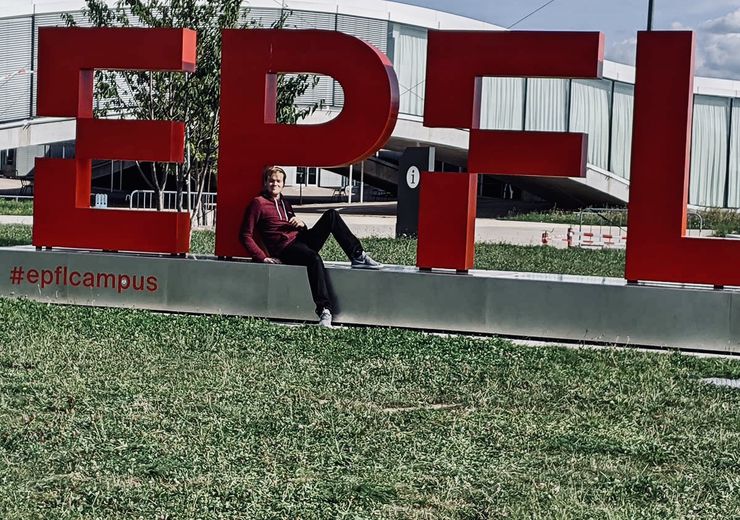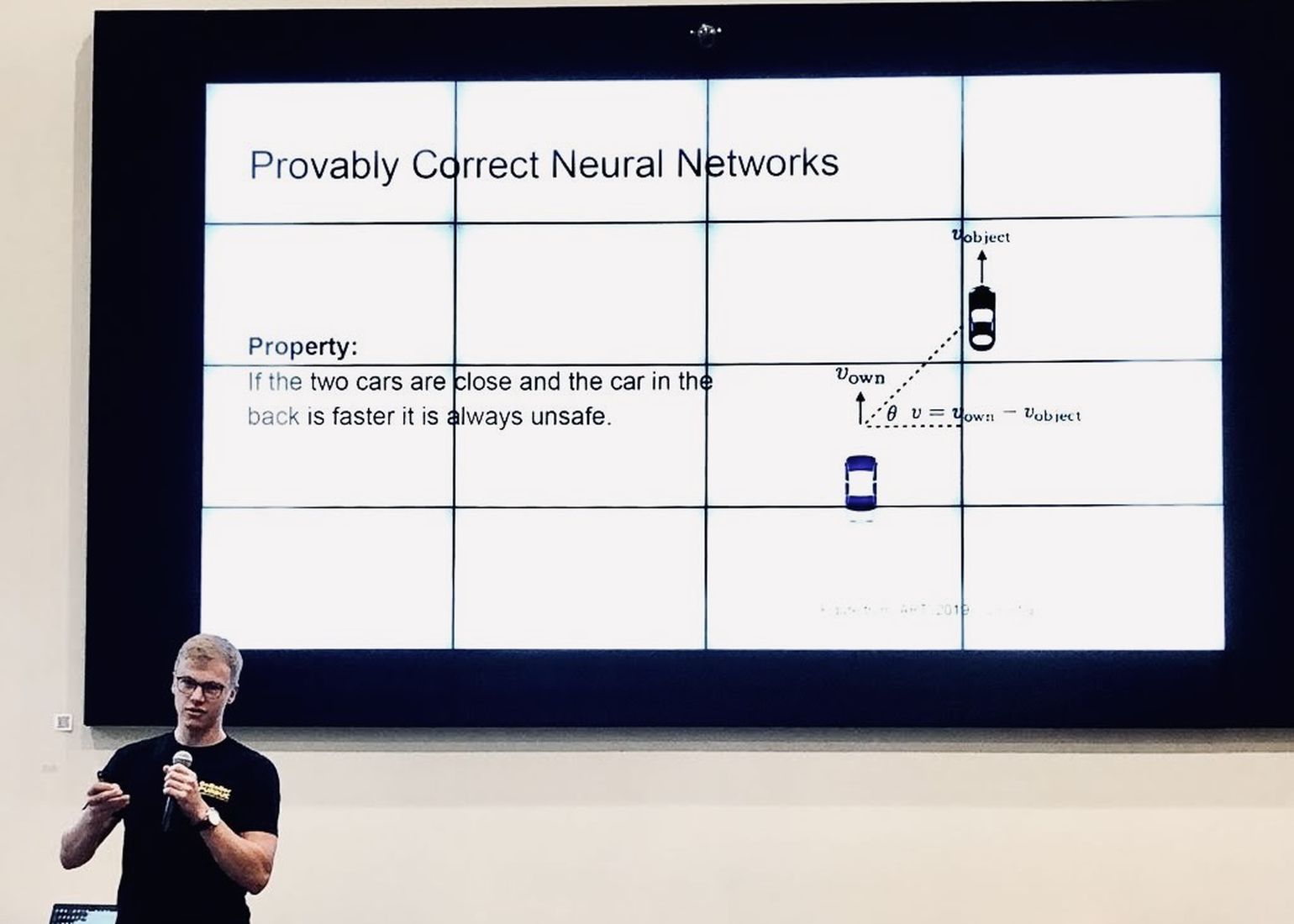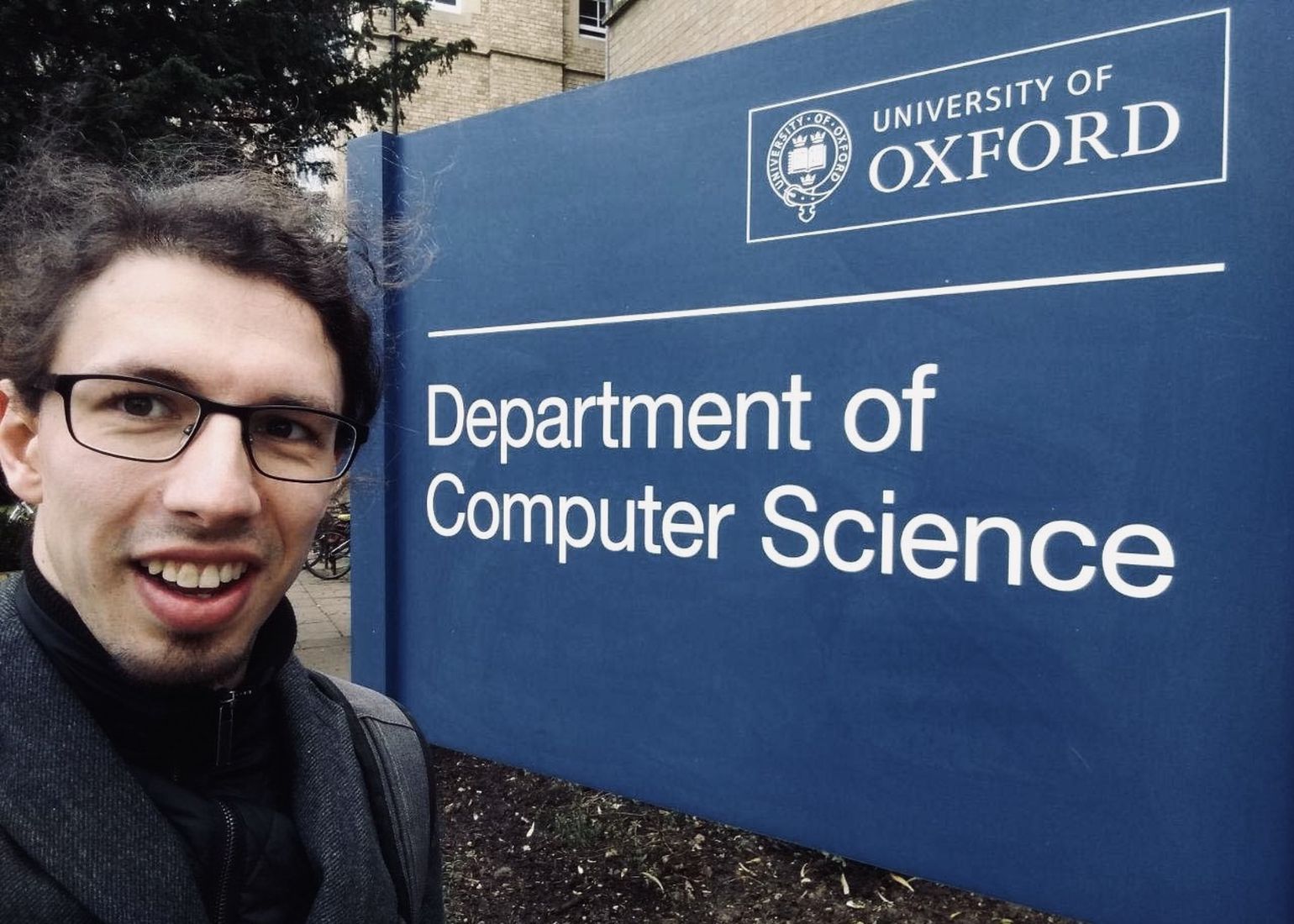“I Want to Be Challenged!”–Stories from our Bachelor with Honors Students
We asked our Bachelor with Honors students and graduates for their experiences. Here are some of their amazing stories.

Picture: Brainlab
During his studies, Marcel Moosbrugger experienced “that there are many opportunities for students who struggle, but I never came across a program for students who want to do more”. Rafael Vrecar, too, was always motivated to do his best in every course: “I thought the Bachelor with Honors program was a great possibility to enrich my experience and also to push my limits further.” With the program, we aim to promote excellence actively, awaken early research interests, and, last but not least, attract the best students to the TU Wien and our faculty.
There are many opportunities for students who struggle, but I never came across a program for students who want to do more.
While students are usually introduced to exciting research questions only in their master’s programs, we want to evoke interest in scientific research at an earlier stage of the academic career and specifically challenge and support outstanding students. If Alexander Falzberger had not taken the Bachelor with Honors program, he would have missed these insights into research.
“What makes the program special is that you can get this early research experiences a lot sooner than otherwise, during your regular Bachelor studies,” he explains and says he benefitted a lot from the internship at the University of Oxford, where he worked in a joint project with the company DeepReason.ai. “This internship was only made possible due to my mentor Georg Gottlob,” Alexander is convinced. This year, he did another internship at the Max Planck Institute in Saarbrücken, and the supervisor for his thesis (Emanuel Sallinger) plus the topic of the same he came across in Oxford, too. “I really would not stand in my studies where I stand now if I did not participate in the program.”

Picture: Renée Sophie Singer
A Chance to Be Individually Tutored
“What makes the program unique in contrast to curricula of other universities is the personal approach—the one-to-one contact with professors and people working in academia with you,” Alexander points out. Rafael Vrecar, a graduate of the Bachelor with Honors program and working as a tutor himself, agrees: “At TU Wien Informatics, there are always high numbers of students in the courses, especially in the bachelor courses. About 600 students start every year, and with the Bachelor with Honors program, you get the chance to be individually tutored.”
Apart from the habilitated faculty members acting as mentors, the individually selected additional study program allows exceptionally gifted students to deepen their knowledge and develop their scientific potential at an early stage. “What I like most about the program is that you, as a student, can create and design your curriculum. It is very flexible, and you can have the space to explore the things you want. With the guidance of your mentor, that can be a perfect combination,” Jakob Troidl, who recently returned from an internship at Harvard’s John A. Paulson School of Engineering And Applied Sciences, particularizes.

Picture: Markus Nissl
Broaden Your Horizon
“I wanted to explore some scientific contexts outside my bachelor’s program,” Jakob describes his motivation for joining the Honors program. Thus, he also conducted an industrial R&D internship at Brainlab (Munich) and attended a summer school at the Visual Computing Center at KAUST (Saudi Arabia).
The Honor’s curriculum includes a special internship program for academia and industry—intended to broaden one’s horizon. Selected international universities such as EPFL, Purdue University, ENS Paris-Saclay, University of Illinois at Urbana-Champaign, ETH Zürich, IST Austria, and Max Planck Institut Informatik belong to our academic host institutions. Moreover, renowned companies like Infineon, Intel, and Robert Bosch AG contribute to the program.
For Valentin Rupprecht, the most invaluable experience in the program was his ten-week internship at EPF Lausanne. He believes that there are two ways of doing the program: “You can simply attend a few additional lectures and receive the letter from the rectorate confirming you are excellent in what you do. Or you apply for the many possibilities your mentor can open up for you.”
Susanne E. Hambrusch, Professor of Computer Science at Purdue University (Indiana/USA), and TU Wien graduate herself, describes Purdue’s GoBoiler internship program as targeted at European bachelor or early master computer science students. “During the two months program, interns work closely with faculty and graduate students on cutting-edge research projects. Interns are involved in a range of research activities and work with their research mentor on a project. They socialize with doctoral students and experience the lifestyle on a large US university campus.”
She is always thrilled to see students from the Bachelor with Honors program interested in the GoBoiler program: “Past participants have been successful interns. They came with excellent preparation for research and a delightful curiosity for exploring campus life. In two intense months, interns developed broad academic and technical skills valuable for their future careers.”

Picture: Purdue University
The very best students are tempted by attractive offers to leave the university with only a master degree—and we counteract.
Down with the Brain Drain
Besides supporting excellence, a primary goal was to counterbalance the increasing trend among our top master graduates to accept industry jobs before doing a doctoral thesis. “Unfortunately, the high demand from industry for our very well educated graduates also means that the very best students are tempted by attractive offers to leave the university with only a master degree,” explains initiator and coordinator of the Bachelor with Honors program, Ulrich Schmid. “Therefore, we counteract this brain drain in scientific research and inspire talented students to take up research.”
Marcel Moosbrugger participated in the GoBoiler Summer Research Program at the Department of Computer Science of Purdue University and is pursuing his doctoral degree right now at the research unit Formal Methods in Systems Engineering with Laura Kovacs. “I was interested in research even before I joined Bachelor with Honors, but the program motivated me even more to do it.” According to him, these internships are like a light version of research and give you the chance to see whether academia would be suitable for you or not. “It gives you a good taste of what a doctoral thesis work is like. Furthermore, you can create valuable connections to other scientists and students from other universities.”

Picture: Andreas Auer
Just Do It
The Bachelor with Honors program is designed as a one-year extension of each regular Bachelor degree in Informatics and Business Informatics and is comparable with the four-year Bachelor programs in the USA. Admission and graduation depend solely on performance. Jakob Troidl remembers his doubts when applying for the program. “Am I the right person for this program? Am I good enough for this program?” He decided that he was good enough since he fulfilled the application criteria and gave it a try.
The program is open to everyone, and everyone can join if they meet the criteria and are willing to do the extra lectures.
Marcel Moosbrugger, too, thinks it wrong to believe the program is reserved for an elitist circle. “It is open to everyone, and everyone can join if they meet the criteria and are willing to do the extra lectures. It is like a provided service—you can take it, or you can leave it.” Students who pursue a master after their BSc should not be afraid to join the program, says Andreas Auer, who did an internship at Oxford University.
“Some students aren’t aware that there is no real extra work because you do master courses anyway. Everyone is nice to you and helps you with setting up the program. There is nothing to fear.” He sees the certificate of Honors as a tool to show your achievements, “and it looks good in your CV, to be honest.” Yet, the main advantage to him is to connect to other motivated students.
Markus Nissl attended a summer school at EPFL in Lausanne, organized by the Bachelor with Honors program. His advice to fellow students: “If you have the chance to join the program, then definitely try it out. Choose a mentor who is in your research area so that you can work in line with the current research. That way, you have a good collaboration for your bachelor’s or master’s thesis, or even for your doctoral thesis.” And, as Marcel Moosbrugger puts it, “This is the first program for students who want to excel and want more. I enjoyed it very much.”
Further Information
How to Join the Program
You want to prove your potential in individually designed challenges, nurture your talents, and engage in scientific research? Then hop over to our dedicated pages to find out more! We will answer all your questions, explain the admission procedure, and help you design your individual curriculum!
Cooperation Opportunities
We want to introduce our Bachelor with Honors students to the international scientific community and industry. To achieve this, we are constantly expanding our network of partners. Are you looking for opportunities to collaborate with us and our amazing students? Then get in touch with us!
